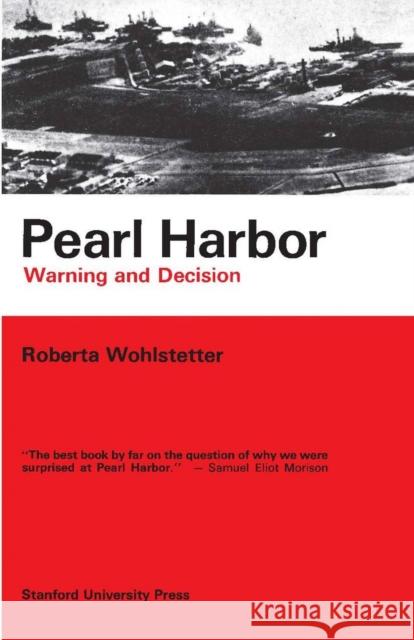Pearl Harbor: Warning and Decision » książka
Pearl Harbor: Warning and Decision
ISBN-13: 9780804705981 / Angielski / Miękka / 1962 / 428 str.
It would be reassuring to believe that Pearl Harbor was just a colossal and extraordinary blunder. What is disquieting is that it was a supremely ordinary blunder. It was a dramatic failure of a remarkably well-informed government to call the next enemy move in a cold war crisis. The results, at Pearl Harbor, were sudden, concentrated, and dramatic. The failure, however, was cumulative, widespread, and rather drearily familiar. This why surprise, when it happens to a government, cannot be described just in terms of startled people. Whether at Pearl Harbor or at the Berlin Wall, surprise is everything involved in a government's (or in an alliance's) failure to anticipate effectively. Pearl Harbor: Warning and Decision is a unique physiology of a great national failure to anticipate. Wohlstetter is at pains to show how easy it was to slip into the rut in which the Japanese found us, it can only remind u how likely it is that we are in the same kind of rut right now. The danger is not that we shall read the signals and indicators with too little skill; the danger is in a poverty of expectations--a routine obsessing with a few dangers that may be familiar rather than likely. Alliance diplomacy, interservice bargaining, appropriations hearings, and public discussion all seem to need to focus on a few vivid and oversimplified dangers. The planner should think in subtler and more variegated terms and all for a wider range of contingencies. But, as Wohlstetter shows, the "planners" who count are also responsible for alliance diplomacy, interservice bargaining, appropriations hearings, and public discussion; they are also very busy. This is a genuine dilemma of government. Some of its consequences are mercilessly displayed in this book.











